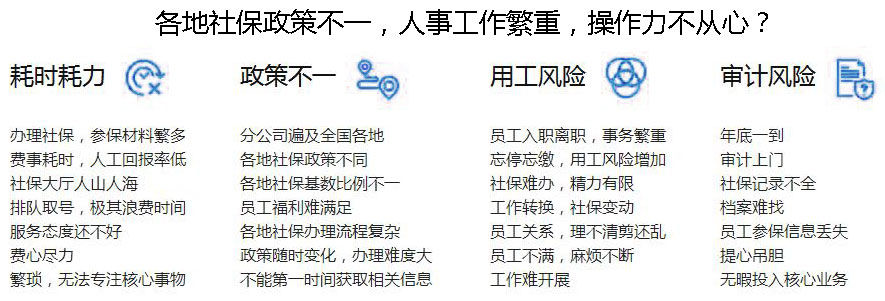- test
- Avia Masters in India Crash Game Dynamics and Betting Strategies
- Avia masters Casino igra z RTP 97%
- Going for The fresh Web based casinos in the Ca: Helpful tips to have 2025
- ten Finest Crypto Casino Betting, Playing United states Sites out of 2025
- Verbunden Kasino Provision ohne Einzahlung originell! 2025
- Jobb valódi pénzes online kaszinók az USA-ban Játssz és nyerj valódi pénzt
- Finest Web based casinos for your Area, Incentives & Earnings
Tech Renaissance Ignites $800 Million Investment Signals a New Era for Nigerian Innovation and posit
- Tech Renaissance Ignites: $800 Million Investment Signals a New Era for Nigerian Innovation and positively impacts current tech news.
- The Landscape of Investment and Key Players
- FinTech Innovations Leading the Charge
- The Role of Infrastructure Development
- Impact on Startups and Entrepreneurship
- Building a Supportive Ecosystem
- Future Outlook and Potential Challenges
- Addressing Security Concerns
Tech Renaissance Ignites: $800 Million Investment Signals a New Era for Nigerian Innovation and positively impacts current tech news.
The technology landscape in Nigeria is undergoing a dramatic transformation, fueled by substantial investment and a growing wave of innovation. Recent reports indicate a significant influx of capital, specifically an $800 million investment directed towards bolstering the tech ecosystem. This surge in funding signals a renewed confidence in the potential of Nigerian startups and tech companies, impacting current tech news and potentially reshaping the economic future of the nation. The investment is expected to spur job creation, accelerate technological advancements, and position Nigeria as a key player in the African tech scene.
This unprecedented level of financial support is not merely a financial transaction; it represents a considerable vote of confidence in the talent, resilience, and ingenuity of Nigerian entrepreneurs. It promises to unlock opportunities across numerous sectors, from financial technology (FinTech) and agriculture to healthcare and education. The implications are far-reaching, suggesting a potential shift in economic power dynamics within Africa and beyond. This influx of funds directly impacts the volume of activity reported in tech news outlets globally.
The Landscape of Investment and Key Players
The $800 million investment isn’t coming from a single source, but from a diverse consortium of investors including venture capital firms, international organizations, and private equity groups. This diversification is crucial, ensuring the sustainability of the funding and reducing reliance on any single entity. Several key players are emerging as central figures in this tech renaissance, including local venture capitalists who understand the nuances of the Nigerian market and international firms eager to tap into its high-growth potential. These investors recognize the inherent value in fostering innovation within Nigeria.
| Venture Capital Firms | Early-Stage Startups, Seed Funding | $200M – $300M |
| International Organizations | Sustainable Development, Tech Infrastructure | $150M – $250M |
| Private Equity Groups | Growth-Stage Companies, Expansion Capital | $200M – $300M |
FinTech Innovations Leading the Charge
The FinTech sector is witnessing particularly rapid growth, mirroring global trends but with a distinctly Nigerian flavor. Companies are leveraging mobile technology to provide financial services to previously unbanked populations, opening up opportunities for economic inclusion. Innovative solutions include mobile payment platforms, digital lending services, and blockchain-based financial products. This pivot towards digital finance is mitigating traditional banking limitations and empowering individuals and small businesses to participate more fully in the formal economy. This rapid development consistently emerges in tech news, indicating a significant sectoral trend.
These advancements aren’t merely about convenience; they have profound implications for financial stability and economic growth. By reducing reliance on cash, FinTech solutions are curbing corruption, increasing transparency, and fostering a more secure financial system. Furthermore, these technologies are enabling cross-border transactions with greater efficiency, facilitating trade and investment. The acceleration in FinTech adoption showcases Nigeria’s potential as a catalyst for digital financial transformation in Africa.
The success of these initiatives depends heavily on fostering a supportive regulatory environment. The Nigerian government has begun to implement policies aimed at promoting innovation and creating a level playing field for FinTech companies. This responsiveness is critical to sustaining growth and attracting further investment. Expect continued coverage of these developments in prevalent tech news sources.
The Role of Infrastructure Development
While funding is essential, it’s insufficient without a robust supporting infrastructure. This includes reliable internet access, consistent power supply, and efficient transportation networks. Nigeria has been making notable strides in improving its infrastructure, but significant challenges remain. The recent investment is partly earmarked for upgrading technological infrastructure, including broadband networks and data centers. The key is to address the digital divide and ensure that the benefits of technology are accessible to everyone, regardless of their location or socioeconomic status.
Strengthening the digital infrastructure requires a concerted effort from both the public and private sectors. Public-private partnerships are proving to be effective in accelerating infrastructure development and overcoming financial hurdles. These partnerships leverage the expertise and resources of both sectors to deliver projects more efficiently and effectively. The impact directly addresses common concerns voiced in tech news circles regarding scalability and accessibility.
Furthermore, investment in human capital is equally crucial. Training programs and educational initiatives are needed to equip the workforce with the skills required to drive innovation and participate in the growing tech industry. Ensuring a skilled talent pool is critical for sustaining long-term growth and maintaining Nigeria’s competitive edge.
Impact on Startups and Entrepreneurship
The $800 million investment is creating a fertile ground for startups and entrepreneurs. Access to funding allows them to scale their operations, expand their reach, and develop innovative products and services. Many startups are focusing on solving local problems with homegrown solutions, addressing unique challenges faced by Nigerian communities. These ventures are often disruptive, challenging established industries and creating new market opportunities. The active startup scene is frequently profiled in tech news reports highlighting African innovation.
- Increased access to seed funding and venture capital.
- Greater opportunities for mentorship and networking.
- Enhanced ability to attract and retain top talent.
- Reduced financial barriers to entry for aspiring entrepreneurs.
- Facilitated expansion into regional and international markets.
Building a Supportive Ecosystem
A thriving startup ecosystem requires more than just funding. It needs a supportive network of incubators, accelerators, and co-working spaces. These organizations provide startups with mentorship, resources, and a collaborative environment to foster growth. Nigeria is witnessing a growing number of these supportive initiatives, creating a vibrant community where entrepreneurs can connect, learn, and share ideas. These incubators often highlight their success stories through consistent press coverage, contributing to tech news volume.
Moreover, government policies play a vital role in shaping the ecosystem. Tax incentives, streamlined regulations, and intellectual property protection are crucial for attracting investment and fostering innovation. The Nigerian government is actively working to implement policies that support entrepreneurship and create a favorable business climate. This proactive approach is nurturing a fertile environment for startups to flourish.
One critical aspect often overlooked is the need for investor education. Many potential investors lack a deep understanding of the Nigerian tech ecosystem. Providing investors with information about local market trends, regulatory frameworks, and investment opportunities is essential for mobilizing capital and maximizing impact.
Future Outlook and Potential Challenges
The future of the Nigerian tech ecosystem appears bright, with the potential for further growth and innovation. The $800 million investment is a catalyst for transformative change, positioning Nigeria as a key player in the African tech landscape. However, challenges remain. Addressing infrastructural deficits, fostering a skilled workforce, and creating a supportive regulatory environment are essential for sustaining momentum. Vigilance against potential macroeconomic pressures is also crucial.
- Continued investment in digital infrastructure.
- Strengthening of educational programs and skills development.
- Streamlining of regulatory processes and policies.
- Cultivating a strong and diverse talent pool.
- Promoting international collaboration and partnerships.
Addressing Security Concerns
Cybersecurity remains a significant concern, as the increasing reliance on digital technologies exposes vulnerabilities to cyberattacks. Strengthening cybersecurity measures is vital for protecting data, maintaining trust, and ensuring the integrity of the digital ecosystem. Investment in cybersecurity infrastructure, training programs, and incident response capabilities is essential. Proactive security protocols are consistently emphasized in relevant tech news reports.
Collaboration between the government, private sector, and cybersecurity experts is crucial for combating cyber threats effectively. Sharing information, conducting joint exercises, and developing common standards are essential for bolstering cybersecurity defenses. A coordinated approach is needed to address the evolving nature of cybercrime and mitigate potential risks.
Furthermore, raising awareness among individuals and businesses about cybersecurity best practices is paramount. Educating users about phishing scams, malware threats, and data privacy issues is essential for preventing cyberattacks and protecting sensitive information. Continuous education and awareness campaigns are vital for fostering a cybersecurity-conscious culture.
The influx of investment into Nigeria’s tech sector represents a pivotal moment. It is a potent combination of capital, ambition, and necessity that is poised to unlock new opportunities and drive unprecedented economic growth. While hurdles remain, the momentum is palpable, and the potential for transformation is immense. Current indicators suggest this is just the beginning of a remarkable journey for Nigerian technological innovation, a story that will continue to unfold and dominate tech news for years to come.

常见社保问题:
Q1:社保代理合法吗?
A1:合法。
相关法律:《劳动保障事务代理暂行办法》第二条规定“本暂行办法所称的劳动保障事务代理,是指劳动保障事务代理经办机构,根据协议,接受用人单位或劳动者个人的委托,在一定期限内为委托方代管劳动者个人档案、代办劳动人事、社会保险等劳动保障事务的行为”
A2:社保代理收费标准为19.8元/月起,代理办理社保相应服务,主要有:
1.工伤认定、评级、报销手续;
2.养老退休手续;
3.生育津贴、产前检查费报销、申领手续;
4.参保人员的医疗费报销;
5.失业保险金领取手续
6..……
A3:养老保险需要交满15年。养老金领取按当地社保领取政策为准。
A4:医保具体连续缴纳时限,各地社保政策有不同的规定,成都规定要连续缴纳12个月。医保断缴后即暂停享受医保待遇,欠费3个月以内补缴的,不算断缴,可连续享受社保待遇,欠费4个月以上的视为中断。
A5:生育保险要连续交满12个月,才能享受生育待遇。生育保险具体报销标准应看各地社保政策规定。

